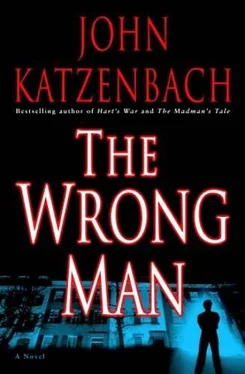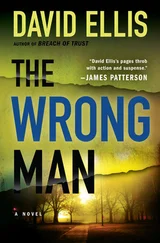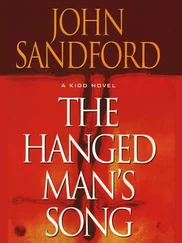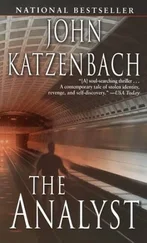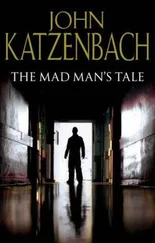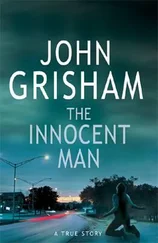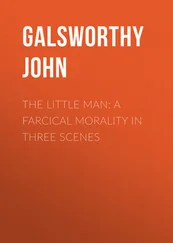But that wasn’t the dangerous part. There was simply no denying that a half dozen key paragraphs were word for word the same in both. Professor Burris had helpfully highlighted the offending sections in yellow.
In a lengthy scholarly paper for an esteemed journal and in a 160-page double-spaced doctoral thesis, the offending paragraphs constituted only a tiny percent. And the observations they made were hardly of earth-shattering academic importance. But Scott knew that both those aspects were entirely beside the point. They were identical and that was that.
He had a sudden memory of the Red Queen in Alice’s Adventures in Wonderland. Execution first, then we’ll have the trial!
Scott had absolutely no doubt that he had written the sentences in front of him. Whatever hopes he’d had, that somehow one of his two student assistants had accidentally put the words in a note and that he’d used them without double-checking had disappeared. Their work was blameless.
His, on the other hand, apparently was not.
He reeled about in his seat, squirming in turmoil.
Professor Burris had not indicated what the source of the complaint was. Scott presumed it had come from the doctoral student, or from someone on the faculty at the University of South Carolina. Possibly some history buff-of which there were hundreds of thousands around the United States-had made the comparison, but he doubted he or she would have had the reach to enlist a historian as prominent as Burris.
It was almost midday before Scott, unshaven, bleary-eyed, and on his fourth cup of coffee, finally reached the acting chair of the USC History Department on the phone. To his surprise, the man was outgoing and helpful, and clearly unaware that any questions had been raised about Scott’s work. Instead, the acting chair immediately assumed that the fault ran in the other direction.
“Why, certainly I recall that thesis,” the acting chair said. “It received some very high marks from the entire panel. It was well researched and well written and, I believe, is in line for publication somewhere. And the young man, quite a fine student, and quite a fine fellow, I imagine has a terrific career ahead of him. But you say there is some question about the thesis? I find it hard to imagine-”
“I just want to examine some similarities. After all, we work in the same general area of expertise.”
“Of course,” the acting chair said. “Although I would hate to discover that a student here had engaged in any impropriety…”
Scott hesitated. He knew he had given the fellow historian the untrue impression that it was the onetime student who was potentially guilty of an academic felony. “You know, if I could speak with the young man, it might clear things up,” Scott said.
“Why, of course. Let me just check…”
Scott was placed on hold for several nerve-racking minutes. He sat immobile waiting to resume the conversation that might cost him everything that he’d spent years constructing.
“Well, Professor Freeman, sorry to have kept you waiting. It’s a little tricky for anyone to reach out and contact Louis. Young Mr. Smith took his newly minted doctorate and joined Teach For America. Sure as blazes isn’t what most of our students do. Anyway, the number and address we have for him is in some place north of Lander, Wyoming, on an Indian reservation. I’ll give you that now.”
Scott called out to Wyoming, discovered that Louis Smith was stuck in a class of eighth-graders for several hours, left his name and number, and explained that it was urgent. When the phone finally rang, he grabbed at it.
“Professor Freeman? This is Louis Smith.”
“Thanks for calling back,” Scott said.
The young man seemed enthused. “I’m really honored that you would call, Professor Freeman. I’ve read everything you’ve ever published, especially on the early days of the Revolutionary War. That’s my area, too, and I have to admit, I find it all fascinating, all the time. The military maneuvering, the political intrigues, the most improbable success. So many lessons for today. I mean, you can imagine on an Indian reservation how differently people view all those concepts of history that we take for granted.” The young man spoke rapidly, nonstop. But before Scott could interject something, Smith paused and took a breath and apologized. “I’m sorry. I’m rambling. Please, Professor, to what do I owe the honor of this call?”
Scott hesitated. The boundless energy from the young teacher wasn’t what he’d expected. “I’ve read your doctoral thesis…”
“You have! Oh, that’s great, I mean, if you liked it? Did you think that I got it all right?”
“It’s excellent,” Scott said, a little taken aback. “And your insights are right on point.”
“Thank you, Professor. I can’t tell you how much that means. You know, you do all this work, and maybe it gets published by an academic press-I’m still hoping for that-but really hardly anyone except your board and maybe your girlfriend actually sees it. To find out that you’ve actually read it…”
“There is a question,” Scott said stiffly. “There are some similarities between your thesis and a piece I did some months later.”
“Yes. In The Journal of American History. I read it carefully, because we dealt with much the same material. But similarities? How do you mean?”
Scott took another deep breath. “I have been accused of plagiarizing some of the paragraphs you wrote. I did not, but I have been accused.”
He stopped and waited. It took Louis Smith a couple of seconds to gather himself.
“But, that’s crazy,” he said. “Who accused you?”
“I don’t know. I thought it might be you.”
“Me?”
“Yes.”
“No. Absolutely not. Impossible.”
Scott felt dizzy. He had no idea what to think. “But I have in front of me a printout of your thesis, and I must say that there are paragraphs that are word for word the same. I don’t know how this happened, but…”
“Impossible,” Louis Smith repeated. “Your article came out months after my thesis was written, but you must have been doing your writing and research at more or less the same time. And there were delays in publishing my thesis. In fact, other than on the university website, which links to several historical sites, it’s hard to get a copy. The idea that you managed to find it, and then adopt some of the language…well, this is a mystery. Can you read me the paragraphs that are the same?”
Scott looked down at the yellow-highlighted words. “Yes. In my article, on page thirty-three, I wrote…”
And Scott ran through both.
Louis Smith responded slowly. “Well, that’s most curious, because the paragraph you read me that purports to be in both papers does not exist in mine. That is, I never wrote that. It’s not in my thesis. I mean, the points are similar to conclusions I draw, but what you say is there, is not.”
“But I’m reading from a printout of your thesis.”
“I don’t know for certain, Professor, but my immediate suspicion is that someone has tampered with the document you have in front of you. Do you know anyone who might do that?”
The wind had picked up, cutting razorlike across the pitch, and the daylight was fading in the west, making the world filmy gray and indistinct, as Hope gathered the team around her at the end of practice. The strands of hair that had escaped from ponytails were plastered to their foreheads with sweat. She had worked them hard, perhaps harder than she ordinarily would near the end of the season, but she had lost herself in running with them, feeling a release in breathlessness, as if the cold air was the only thing that could possibly distract her.
“Fine effort,” she said. “As sharp as we’ve been all season. Two weeks before the play-offs. You will be tough to beat. Very tough. That’s good. But there are seven other teams heading into the tournament who might be working just as hard. Now it becomes something more than physical. Now it’s about desire. How do you want this year, this season, this team, to be remembered?”
Читать дальше
